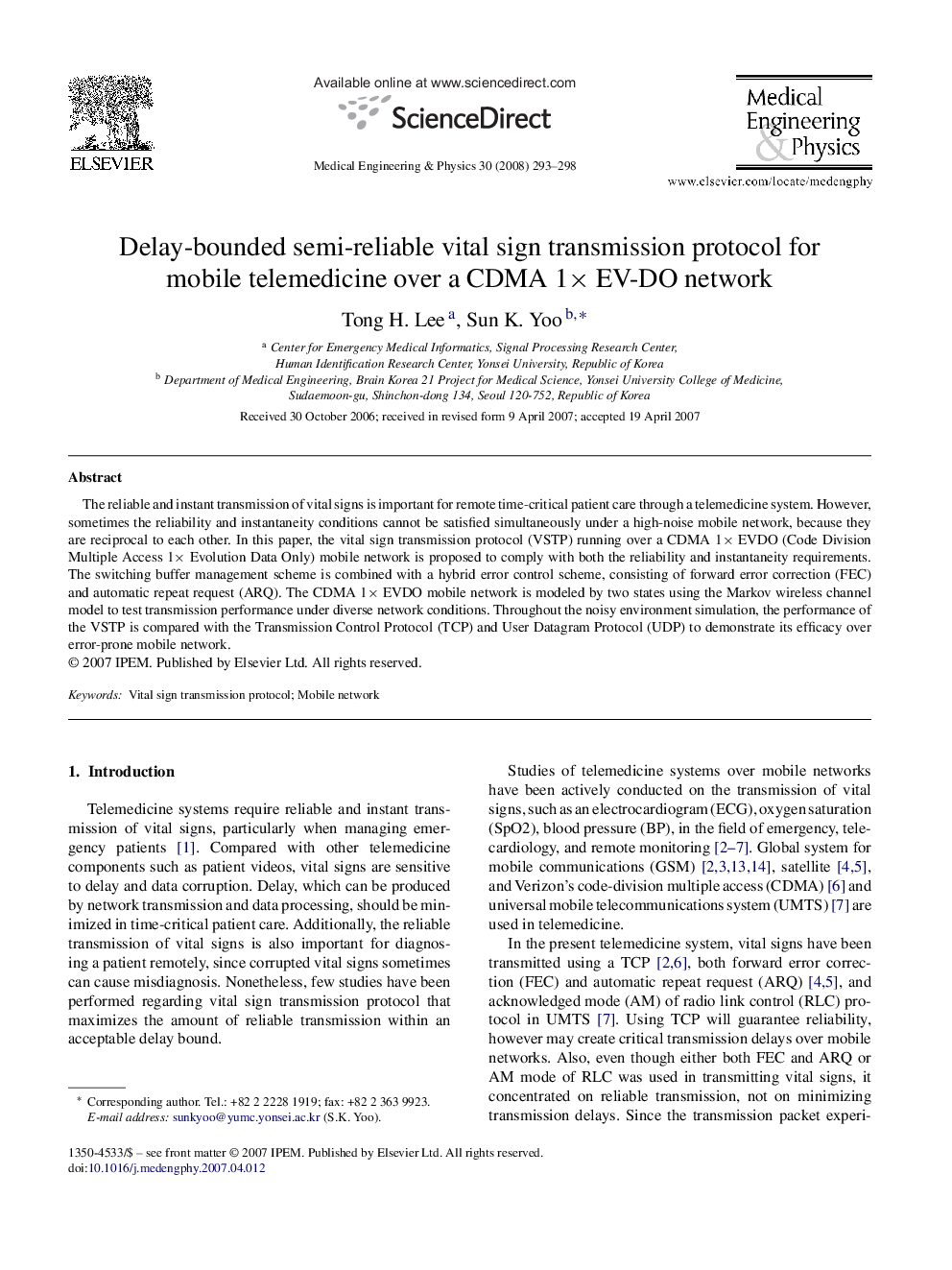| Article ID | Journal | Published Year | Pages | File Type |
|---|---|---|---|---|
| 877011 | Medical Engineering & Physics | 2008 | 6 Pages |
The reliable and instant transmission of vital signs is important for remote time-critical patient care through a telemedicine system. However, sometimes the reliability and instantaneity conditions cannot be satisfied simultaneously under a high-noise mobile network, because they are reciprocal to each other. In this paper, the vital sign transmission protocol (VSTP) running over a CDMA 1× EVDO (Code Division Multiple Access 1× Evolution Data Only) mobile network is proposed to comply with both the reliability and instantaneity requirements. The switching buffer management scheme is combined with a hybrid error control scheme, consisting of forward error correction (FEC) and automatic repeat request (ARQ). The CDMA 1× EVDO mobile network is modeled by two states using the Markov wireless channel model to test transmission performance under diverse network conditions. Throughout the noisy environment simulation, the performance of the VSTP is compared with the Transmission Control Protocol (TCP) and User Datagram Protocol (UDP) to demonstrate its efficacy over error-prone mobile network.
